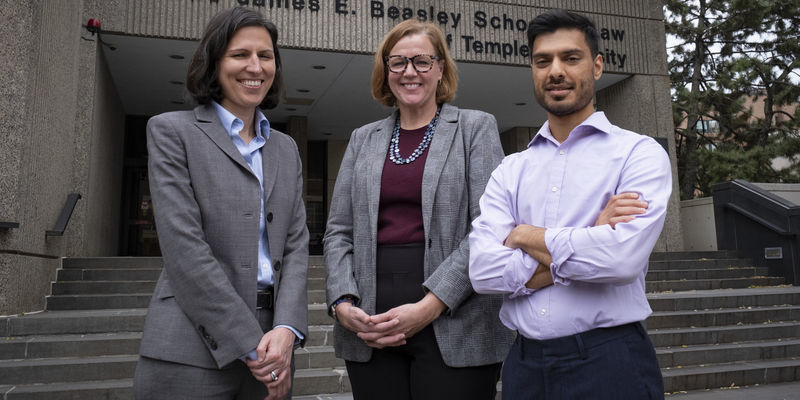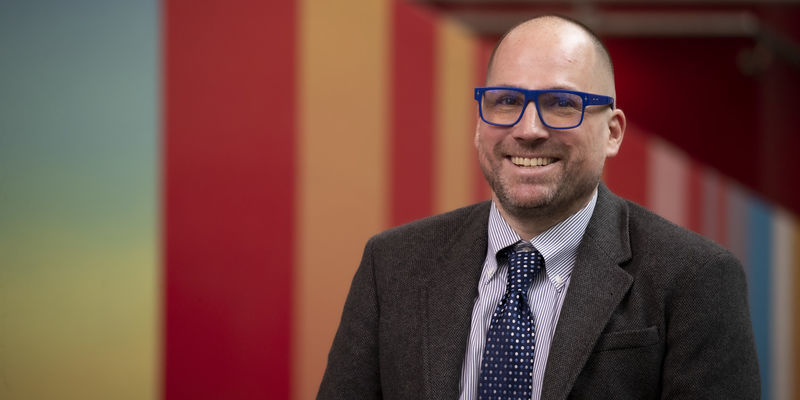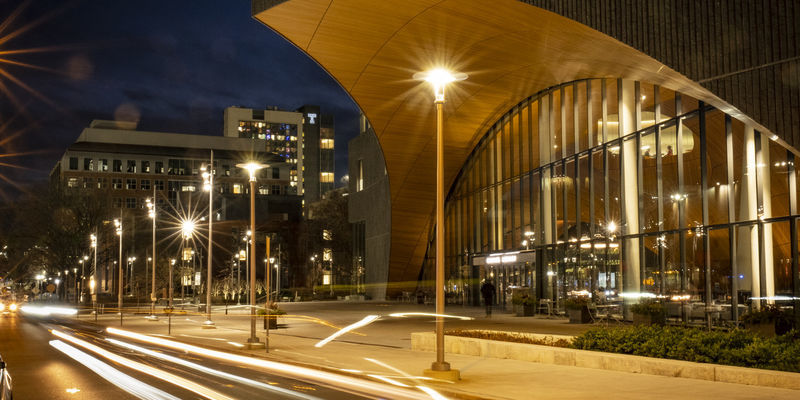Temple Law and Councilmember Thomas partner on groundbreaking NIL bill
The new legislation, which is the first of its kind in the nation, will help Philadelphia high school athletes negotiate fair name, image and likeness deals.
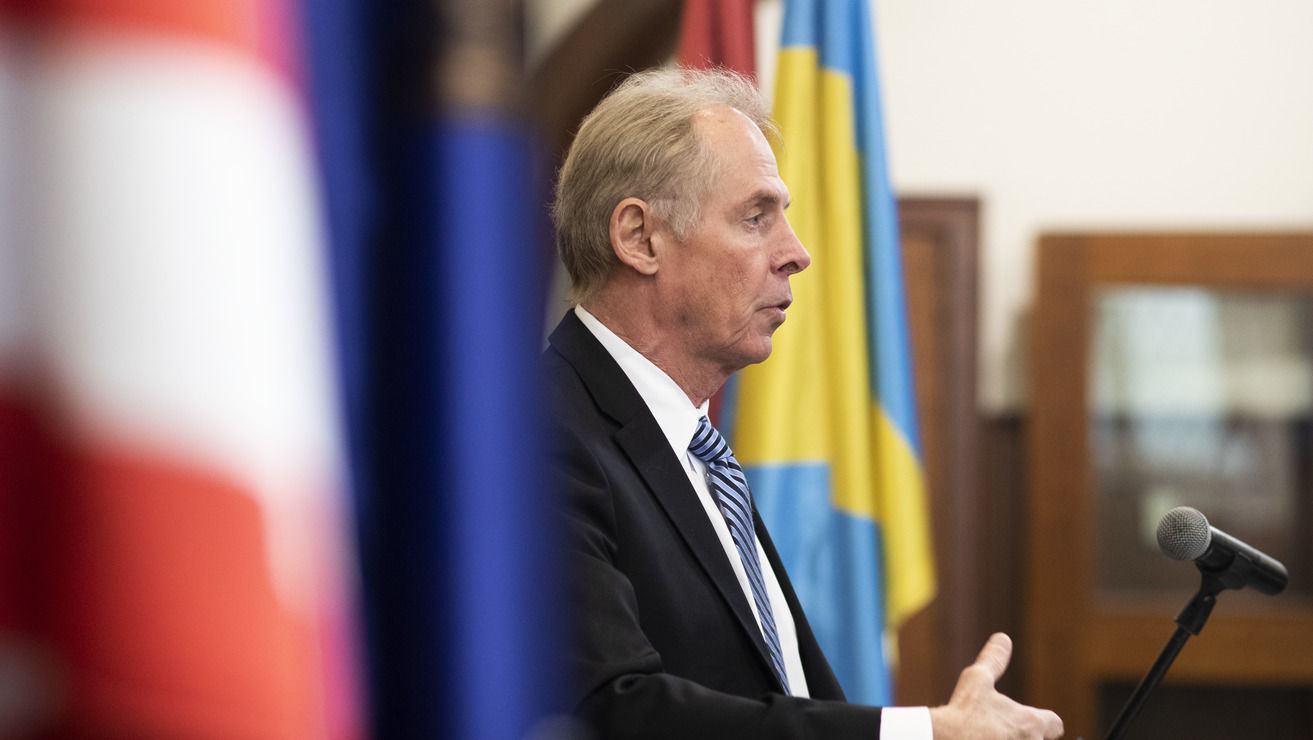
The Temple Law community, local athletes and coaches, and members of the press gathered on campus last Wednesday, Jan. 24, to celebrate new legislation that protects Philadelphia high school athletes in name, image and likeness (NIL) negotiations. The bill, titled Youth Name, Image, and Likeness Protection, is the product of a partnership between the Beasley School of Law and Philadelphia Councilmember Isaiah Thomas. They believe this first-of-its-kind legislation will serve as a model for other cities around the country.
“This initiative, at its core, is about creating access, education and opportunity for so many of the talented student-athletes in the City of Philadelphia,” said Jennifer Bretschneider, Beasley’s assistant dean for students and strategic initiatives.
The state of high school and collegiate athletics forever changed in July 2021 after the National Collegiate Athletic Association (NCAA) ruled that its athletes could receive compensation for NIL deals without losing their eligibility to compete.
NIL deals involve a student-athlete and a third party, typically a brand, that pays the student-athlete for the use of their name, image and likeness. These deals typically take the form of a sponsorship, in which a student-athlete endorses a brand and its products on their personal social media or appears in the brand’s advertisements. Before the NCAA changed its rule in 2021, college athletes could lose their eligibility for profiting off their name, image and likeness.
That 2021 NCAA decision had ripple effects beyond collegiate sports, and in December 2022 the Pennsylvania Interscholastic Athletic Association (PIAA) began allowing high school athletes to accept NIL deals under certain guidelines. But with this shift, some have recognized the need for measures that protect athletes and their families in NIL negotiations.
“Councilmember Thomas has had real conversations with constituents whose children were approached about doing some kind of NIL deal without any guidance or knowledge of what’s going on,” said Ken Jacobsen, a Beasley professor with decades of sports law experience. Jacobsen is overseeing Temple Law’s involvement in the partnership. “The fear is that one of these athletes will make a wrong decision when signing an NIL contract, because those horror stories have happened.”
Jacobsen has seen student-athletes sign deals that forfeit their likeness rights to a business partner in perpetuity. He has seen student-athletes enter deals with partners who charge predatory commission rates. He has seen student-athletes sign what they think is an NIL deal, but what is really an exorbitant loan that they must repay.
There is also the fear that a student-athlete could sign a contract that violates PIAA or NCAA rules resulting in the forfeiture of contests that the student-athlete competed in, the loss of eligibility at the high school or college level and even the loss of college scholarship opportunities.
In response to this, the new legislation establishes a suite of services designed to help local student-athletes and their families avoid signing improper NIL deals.
One of those services is an advisory hotline for students and their families with questions related to NIL or who have been approached with an NIL offer. The hotline, which launched on Jan. 25, is staffed by Beasley students under the supervision of Jacobsen and other practicing attorneys with expertise in NIL.
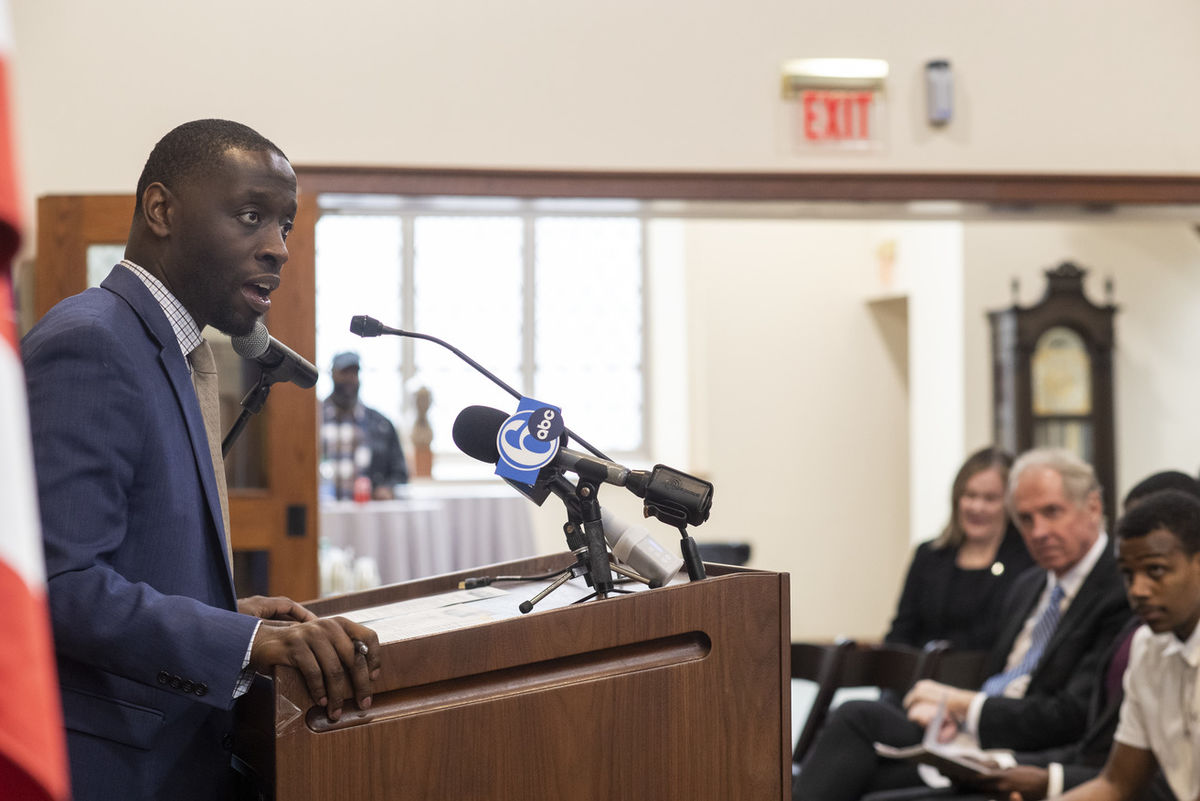
In addition to his duties on city council, Isaiah Thomas is also a high school basketball coach. (Photograpy by Ryan S. Brandenberg)
The partnership will also produce and distribute educational materials including handouts, public service announcement videos and a webpage, which will contain easy-to-understand, graphically rich information about the rights of student-athletes in NIL negotiations.
Jacobsen and Thomas also hope to bring the program into local high schools and sporting events where they can connect with student-athletes and their families on an individual basis.
“I’ve watched hour-long videos, I’ve listened to podcasts, there is nothing like one-on-one engagement with athletes and families to answer their questions and to address their concerns,” Jacobsen said. “That is what we are going to do once this bill gets passed.”
The bill was reintroduced last Thursday and was unanimously approved by City Council. It is expected to be signed into law by Mayor Cherelle Parker after its final passage by City Council on Feb. 8. This will cap off a lengthy development process, which began when Bretschneider first heard Thomas presenting at an NIL-related panel over a year ago. When she approached Jacobsen about partnering with Thomas, he was immediately on board.
“I said look, we need to get moving on this,” Jacobsen said. “I thought this work was right in our wheelhouse and consistent with the legal clinics and other impactful work that Temple Law does in the city.”
Last week’s press conference was a celebration for local student-athletes and their NIL rights, which Jacobsen says have been exploited for too long. But he and Thomas know the job is far from done.
“Our work is only beginning,” Jacobsen said. “The real work starts when we get these programs running and start helping our athletes monetize what they earned, and that is their name, image and likeness.”
